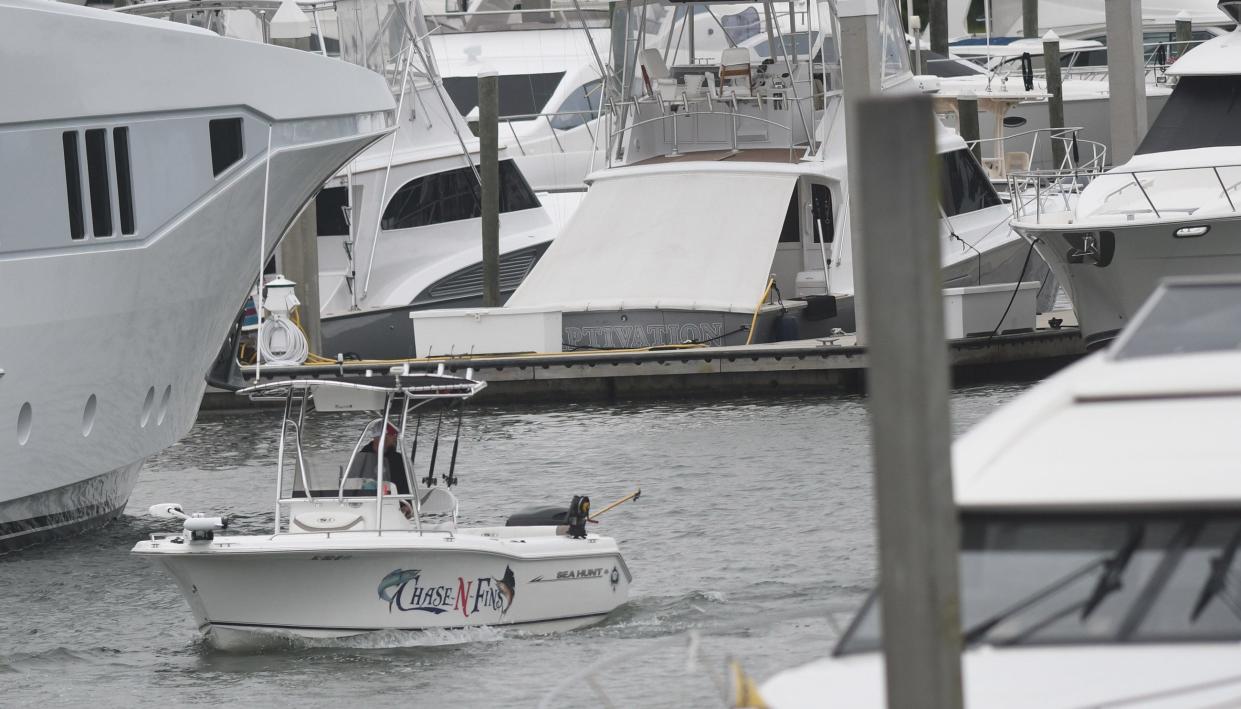Memorial Day weekend: How to prepare for boating season

Memorial Day weekend unofficially marks the beginning of summer. And, of course, boating on area water.
Every year, the week before Memorial Day weekend, the United States Coast Guard and the United States Coast Guard Auxiliary are joined by the North Carolina Wildlife Resources Commission along with local law enforcement and water rescue agencies to spread the word about boating safely.
Boaters, what would you do if there was a fire onboard, a medical emergency, a collision, a person overboard, lost in the fog, darkness, or the vessel broke down?

The StarNews recently interviewed Rich O'Donnell, flotilla commander, United States Coast Guard Auxiliary Southport Flotilla about boating safely.
When does boating season begin? There is no legal boating season such as there is for hunting. Recreational boaters take to the waterways when the air and water temperatures rise. In Southeastern North Carolina, boating really picks up in April and May and remains strong through the summer and into the fall. Some boaters go out year-round as conditions permit.
What are the requirements to operate a boat? In North Carolina, if the vessel operator is born after Jan. 1, 1988, and will be operating a vessel with an engine having 10 horsepower or more, the operator must first obtain a boating safety training certificate. Boating Training Safety Certificates are issued by authorized boating safety trainers to students who take a prescribed boating safety training class and who pass the accompanying exam. If the boater is born before 1988, he/she is exempt from this training requirement. This is only for operating a recreational vessel. Commercial vessels and vessels for hire have more complex regulations. Boaters interested in commercial licenses should contact the United States Coast Guard for more information.
More: 14 things to do in the Wilmington area this weekend, before the Memorial Day crowds arrive
What is the age requirement to operate a boat? In addition to the boating safety training requirement for people born after Jan. 1, 1988, there is an age requirement to operate a personal watercraft (PWC). No person under14 years of age may operate a PWC. A person who is at least 14 but not 16 years old may only operate a PWC if: 1) the operator is accompanied on the PWC by a person at least 18 years old, or 2) the operator of the PWC possesses ID proof of age and proof of passage of a boating safety course approved by the National Association of State Boating Law Administrators.
What safety measures should a boater know? Boaters should be aware of the rules of navigation (the rules of the road for boaters). They should have a thorough knowledge of how to operate their vessel in the types of sea conditions they may face. They should understand the importance of weather and be aware of weather conditions that could have an impact on their boating. They should be aware of the tides and currents and be watching the nautical charts for hazardous conditions. Boaters must have navigation skills and know-how to communicate during an emergency. This includes using a marine radio, a cell phone in locations where it might work, using emergency locator beacons and emergency signaling systems. Boaters must be sure that their vessel has all the required safety equipment (fire extinguishers, lifejackets, signaling devices, engine cut off switch,) as well as equipment such as an anchor, foul weather gear, first aid equipment, navigation tools, dock lines, etc. The single most important safety measure is to always wear a life jacket.
What causes the most boating fatalities? Most boating fatalities happen to boaters and passengers that are not wearing a life jacket. North Carolina law requires anyone younger than 13 to wear a life jacket.
What other safety precautions should boaters take? Boaters should file a “float plan” with a trusted person. The float plan is a description of where the boater intends to travel and the names of persons on board with an approximate timeline for return.
Where can boaters get a free vessel safety check? Boaters can request a free vessel safety check from the USCG Auxiliary. The vessel safety check will identify deficiencies in regard to required equipment.
Are classes offered? Yes. Boating Safety classes are offered by the U.S. Coast Guard Auxiliary, the U.S. Power Squadron, the North Carolina Wildlife Resources Commission, and other trainers. For information about classes offered by the U.S. Coast Guard Auxiliary or for information about getting a free vessel safety check, visit http://wow.uscgaux.info/content.php?unit=054-10-05.
Contact Cheryl Whitaker at 910-343-2004 or at Cheryl.Whitaker@StarNewsOnline.com.
This article originally appeared on Wilmington StarNews: Memorial Day weekend: How to prepare for boating season

